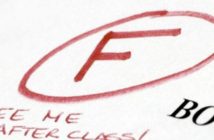
Achieve, an independent, nonpartisan, nonprofit education reform organization, has released a new edition of its “Proficient vs. Prepared” report that shows many states have begun to be more open about accurate levels of student proficiency in math and English Language Arts.
Achieve, as reported on its website, released the original report last May showing that there were inconsistencies, known as the “honesty gap,” between proficiencies released based on state assessments and proficiencies reported by the National Assessment of Educational Progress (NAEP).
The May report compared results from 2013-14 state test results to 2013 NAEP ratings and discovered that half the states had a difference of 30 percentage points or more in fourth-grade reading, eighth-grade math, or both.
The latest report, which compared 2014-15 state test scores to 2015 NAEP results, finds that many states have done away with or significantly minimized the differences. In one or more subject areas, 16 states have eliminated or almost eliminated the gap, which has diminished the difference to approximately five percentage points of NAEP scores.
Nine states have narrowed the gap by ten percentage points or more. NAEP, also know as the “nation’s report card,” is the only assessment that shows comparable results for all 50 states.
In Tennessee, the honesty gap has remained somewhat consistent with the same test given last year, writes Melanie Balakit for The Tennessean, making it one of two states where the gap remained about the same.
The state showed a 15-point discrepancy between state proficiency scores and NAEP scores for fourth-grade reading and a 19-point difference in eighth-grade math for the 2013-14 school year. The gap for the 2014-15 school year between reading scores lowered three points, and between math scores rose by six points.
Those states with greater honesty gaps could be misleading parents regarding their children’s actual academic performance, says the report.
“If you don’t know how students are doing, you can’t really improve student outcomes,” said Sandra Boyd, chief operating officer of Achieve, an education reform organization.
Steps have been taken by officials in Tennessee to establish more rigorous tests and standards. A new assessment, TNReady, will be administered online this year and will test critical thinking skills.
Georgia is receiving praise for its new school testing system because the percentage of students who failed the test is around the same as the percentage who failed the NAEP, says Ty Tagami, reporting for The Atlanta Journal-Constitution. Georgia had the most noticeable gap between the failure rate on state assessments compared to NAEP reports in 2014, according to Achieve. When the new Milestones tests were introduced last year, the honesty gap was eliminated.
Mississippi has also been recognized nationally for removing the honesty gap by accurately reporting student performance information. An analysis created by the Collaborative for Student Success and Achievement found that the state is one of 25 states and the District of Columbia that showed improvement in closing the gap, reports the Mississippi Department of Education.
The gap was lessened because parents were being told about their children’s actual academic performance. Last year, Mississippi had one of the largest discrepancies in the country. Now, the difference has been reduced by 32 percentage points, writes Zac Carlisle of WTVA-TV.




